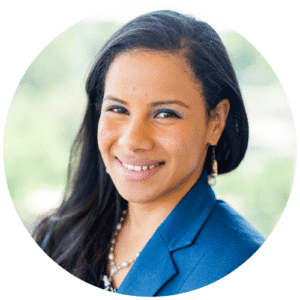|
Getting your Trinity Audio player ready...
|
After eight years working as a US diplomat, I decided to make the switch from government to tech. There are many reasons why I decided to leave a successful and long career (by today’s standards) as a mid-level Foreign Service Officer (FSO), but the most important one was that the lifestyle no longer fit the vision I had for my future self. FSOs spend two-thirds of their careers overseas, moving every two to three years to different countries and representing the US abroad. The other third of one’s career is spent in Washington, DC. This was something I enjoyed earlier in my career, but as time passed, I wanted to have more stability and control over my life.
The other reason was that, in the Foreign Service, one’s career path can be somewhat rigid. I wanted to experiment with different career moves and have a front-row seat to the emerging technologies that are shaping our world. I found that the tech industry provides the most flexibility for reinvention and experimentation.
Today, I am a program manager for the operational development team within trust and safety at Meta, formerly known as Facebook, which I joined in July of this year.
There are many differences between working for the federal government and working in tech. The most glaring difference—and the first one that comes to mind—is the pace. Things move fast in tech—like, really fast. And things change, a lot. So, one has to be very adaptable, resourceful, and a quick thinker to work in tech, otherwise one is literally left behind.
In government, the pace is much slower, even though the work is extremely important. Think of it like this: diplomacy is a generational business. The relationships and alliances we have were built, and will continue to be built, over the course of centuries. Diplomacy is history. Diplomacy is patience. Tech is about moving fast and always staying ahead of the competition.
One thing that the two fields have in common is that they are both global in nature. And that is why I love both and why the transition I made makes sense. Meta was looking to hire someone with expertise in foreign affairs and international relations, and I fit the bill perfectly, having lived, studied, and worked in several countries before and during my diplomatic career.
Today, I’m excelling in my role precisely because of my background. I work under the global operations umbrella and my work on election integrity, misinformation, and content moderation is global in nature. I can apply my diplomatic skills not only by anticipating some of the needs our different countries have during elections and other important civic events but also by finding ways to mitigate risks for vulnerable populations who may be victims of harm due to content posted on the platform.
I also use my interpersonal and relationship-building skills every single day. Tech companies like Meta are horizontal organizations where there is little to no hierarchy and one has to influence cross-functional partners to get anything and everything done. Diplomacy is key, as are leadership skills (you have to really take the lead on projects that interest you and convince others to help you make things happen).
In future, I want to grow into and excel at my current role as a project manager and be the go-to person for certain tools and technologies. But I also want to help other people from nontraditional backgrounds break into the tech industry. I know how hard it is to gain a foothold in this industry, so I’ve decided to do more to help others make similar transitions.
Here are some of my top tips for breaking into the tech industry:
Revamp Your LinkedIn Profile and Network like a Madman/woman
Make sure your LinkedIn profile is up-to-date, then start reaching out to people you know and tell them about your career plans. Throughout my academic and professional journeys, I heard the mantra “Your network is your net worth,” but the importance of that mantra didn’t really hit me until I was ready to transition industries. The relationships you built with people you hung out with in college or grad school, your colleagues at work—that is your net worth, and you should treat each one of those relationships like a diamond. They are that valuable.
Embrace the Cold Email
Don’t be afraid to send cold reachouts to people who currently work at your dream company or have your dream job. People are more open and willing to help than you think. While I was transitioning to the tech industry, I must have emailed dozens of people, with a success rate of over 80 percent. Yes, some people didn’t reply or ignored my emails, but the vast majority did, and I was successful in my job search because of that.
Reach Out Directly to Recruiters
After revamping your LinkedIn profile and working on your résumé, send tech recruiters an introductory email with your résumé and a short list of two to three jobs you are interested in and may be a good fit for. You never know what may come of it.
Educate Yourself—and Others
If you have the time and resources and are interested in technical roles, invest in a bootcamp. It could lead to a role in data science or web development (there are hundreds of job openings for those type of workers). If you’re looking for nontechnical roles, be prepared to make the case for how your skills are transferable to the type of work you are interviewing for. By thoroughly evaluating your own skill set and engaging with your network, you might realize you’re the perfect fit for the tech industry after all!
 Soribel Feliz is currently a project manager for the trust and safety team within global operations at Meta. Before joining Meta, she was a Foreign Service Officer for the US Department of State, where she served in a variety of roles, including as bilateral relationship manager for Sri Lanka and Maldives and as chief of staff to the director of fraud prevention programs in the Bureau of Consular Affairs. In her capacity as a diplomat, Soribel served the United States in two overseas posts: Bucharest, Romania (where she worked as an economic officer), and in Sao Paulo, Brazil (where she was a consular officer). After graduating from CUNY-Brooklyn College, she worked briefly at the House Foreign Affairs Committee while taking graduate-level courses in political management at the George Washington University. Shortly after, she decided to attend graduate school at the Maxwell School at Syracuse University, where she earned master’s degrees in public administration and economics. Originally from NYC, Soribel is back in New York after a ten-year hiatus while preparing for her next move, this time, domestically.
Soribel Feliz is currently a project manager for the trust and safety team within global operations at Meta. Before joining Meta, she was a Foreign Service Officer for the US Department of State, where she served in a variety of roles, including as bilateral relationship manager for Sri Lanka and Maldives and as chief of staff to the director of fraud prevention programs in the Bureau of Consular Affairs. In her capacity as a diplomat, Soribel served the United States in two overseas posts: Bucharest, Romania (where she worked as an economic officer), and in Sao Paulo, Brazil (where she was a consular officer). After graduating from CUNY-Brooklyn College, she worked briefly at the House Foreign Affairs Committee while taking graduate-level courses in political management at the George Washington University. Shortly after, she decided to attend graduate school at the Maxwell School at Syracuse University, where she earned master’s degrees in public administration and economics. Originally from NYC, Soribel is back in New York after a ten-year hiatus while preparing for her next move, this time, domestically.

